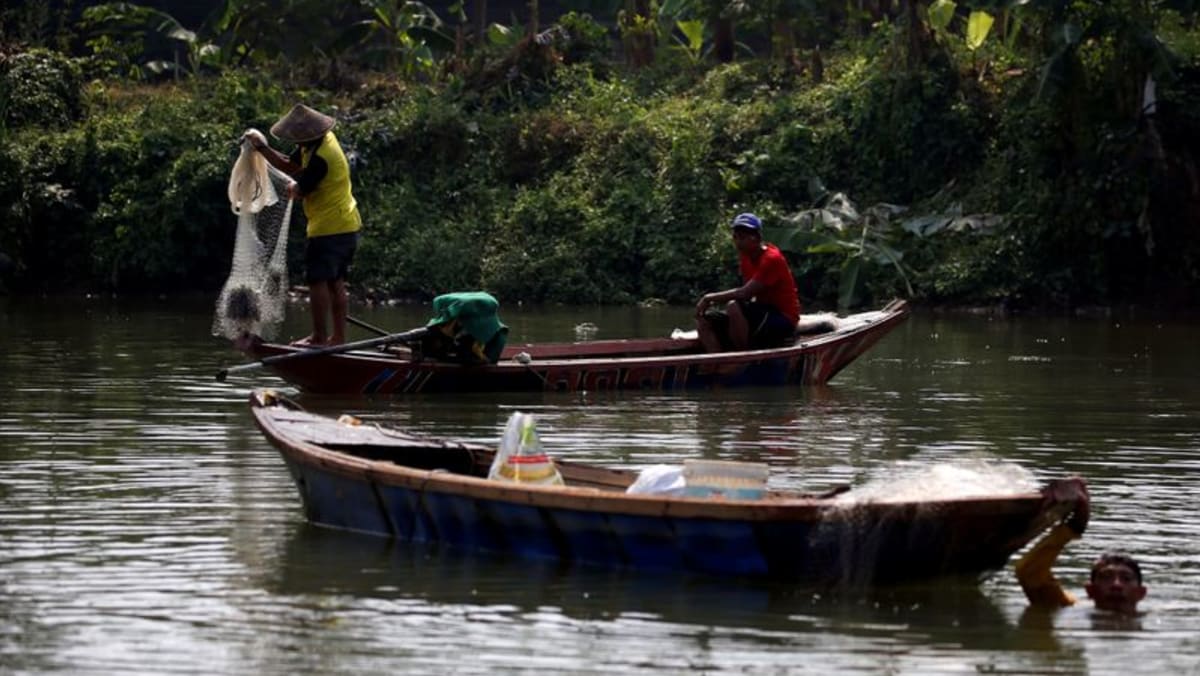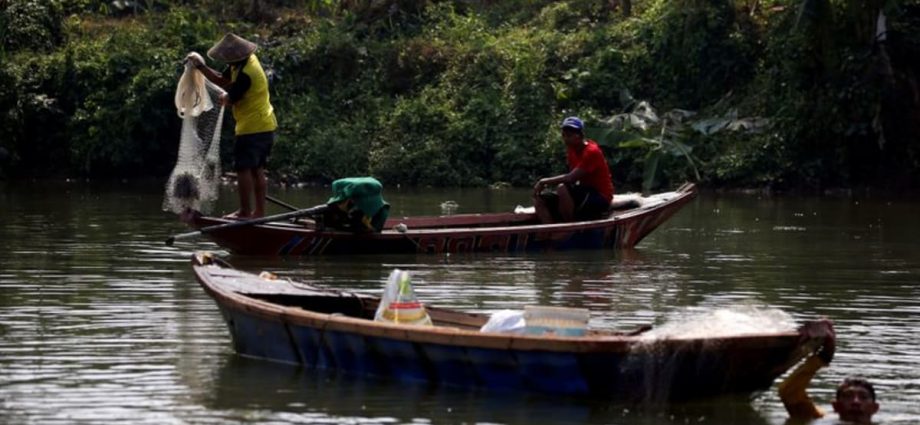
ABANDONING THE SEA
At Tasikagung fishing port in Rembang regency, fisherman Abdi said a decade ago he could catch 10 tons of fish in three days at sea.
To bring in the same harvest today, he estimates he would need to be out for 15 days.
“And only if the weather makes it possible,” he added. He now makes so little income from fishing, he said, that he has had to sell his motorbike for cash to meet his daily needs.
“I will buy it back when I can go out to sea again,” he said, hopefully.
Ridwanuddin at WALHI said his group predicts that as fish migrate further from traditional fishing areas and extreme weather makes fishing more dangerous, Indonesia fishermen will see their incomes drop substantially.
Kurniawan Priyo Anggoro, of Central Java’s Department of Marine Affairs and Fisheries, acknowledged the magnitude of the challenges facing Indonesia’s marine sector in the future, from both climate change and overfishing.
He said his department is working on guidance to help make the province’s fisheries more sustainable, for example by detailing the best times of year to catch certain species, so fishermen can figure out exactly when they need to go out and avoid unnecessary trips into storms or choppy water.
The government also plans to provide fishing communities with free updated gear to improve catches – such as gillnets, vertical panels of netting that hang from a line – and training on how to turn their catch into processed fish products worth more at market.
For now, the growing struggle to support their families is causing a growing number of fishermen to leave the industry.
Data published last year by Indonesia’s central statistics agency show the number of fishermen working in the country has dropped by more than 10% in the past decade.
That’s evident in the regency of East Lombok, once known for its thriving squid processing industry with more than 20 plants preparing squid to send to Japan, Taiwan and other countries.
As catches have dried up and fishermen gone to find other work, “it’s gone now. All the stalls are closed,” said fisherman H. Amin Abdullah.
Because families in East Lombok feel the sea can no longer provide a livelihood, nearly all of them now have members who work outside Indonesia and send money home, Abdullah said.
“Young people aged 18 and above go abroad. Why? Because fishing is no longer profitable,” he said.
“It’s hard to know what to expect from the sea if the temperature keeps getting hotter.”

